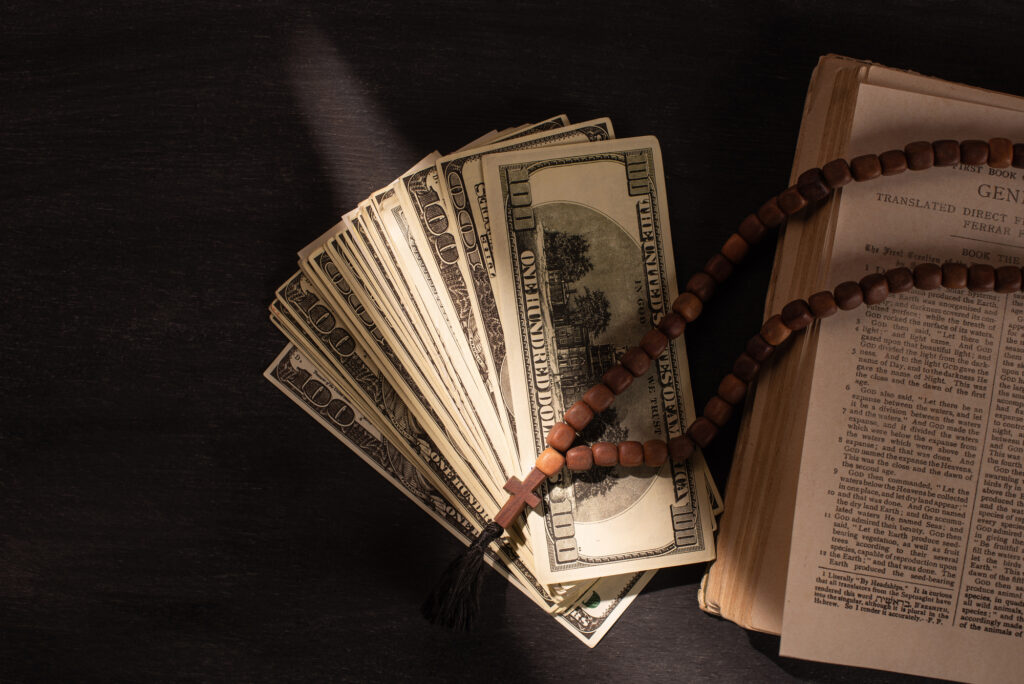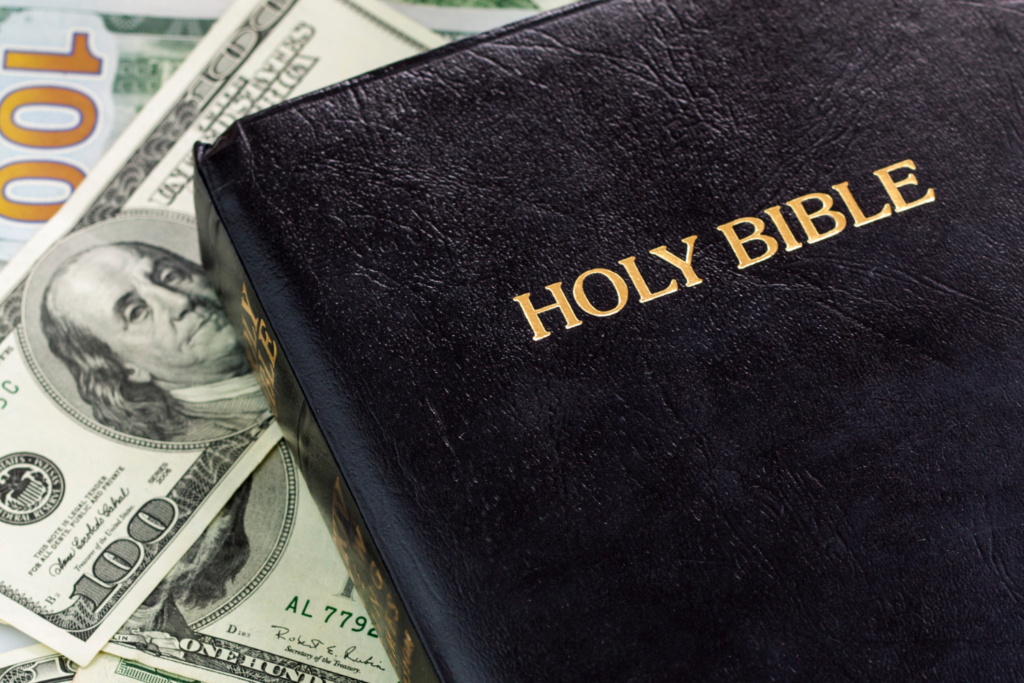
In an era where material wealth dominates societal values, the concept of “Money as a Religion” offers a provocative lens through which to view our global economy and its influence on human behavior. This comparison is not merely metaphorical; it reveals deep-seated parallels between the structures of financial systems and religious institutions.
Money, with its rituals, deities, and temples in the form of markets and banks, commands a form of worship, dictates moral narratives, and shapes the very fabric of society. This article examines the historical evolution of money, its theological parallels with religion, the ethical dilemmas it presents, and its deification in modern culture.
By examining money’s quasi-religious role, we aim to uncover the profound impact it has on our values, ethics, and societal structures, challenging us to reassess our relationship with the almighty dollar.
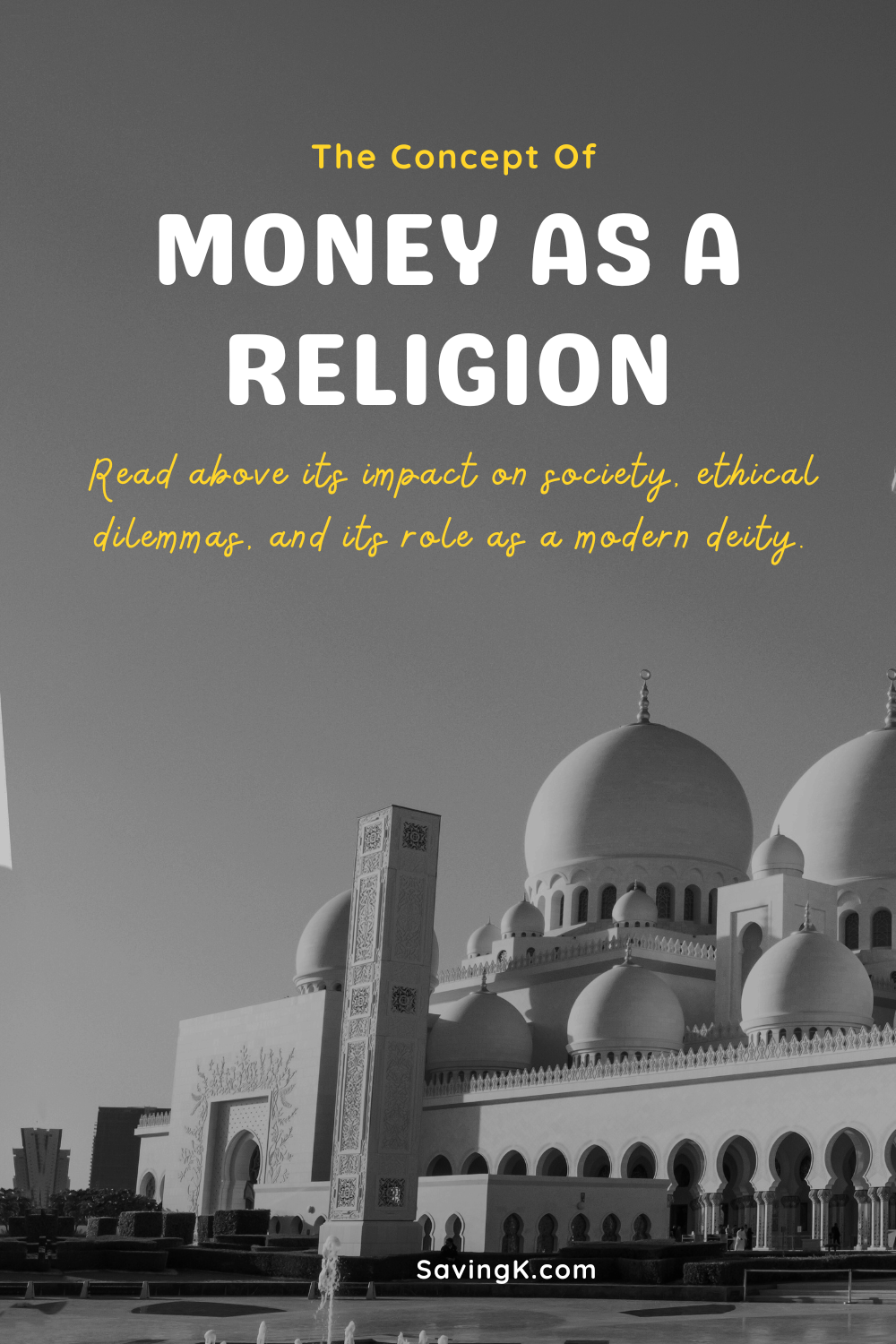
Contents
Historical Context of Money
The story of money is as old as civilization itself, intertwined with human history and progress. It began in the primitive era, where the barter system was the cornerstone of economic transactions. People exchanged goods and services directly, without any standard medium. This system, although functional, was limited by the need for a mutual desire for goods – a dilemma famously known as the ‘double coincidence of wants’.
From Barter to Coinage
As societies evolved, so did their economic systems. The introduction of coinage, first in Lydia around 600 BC, revolutionized trade. These early coins were made from electrum, a natural alloy of gold and silver, and stamped with pictures that indicated their value. This innovation allowed for more efficient and far-reaching trade, fostering economic growth and cultural exchange.
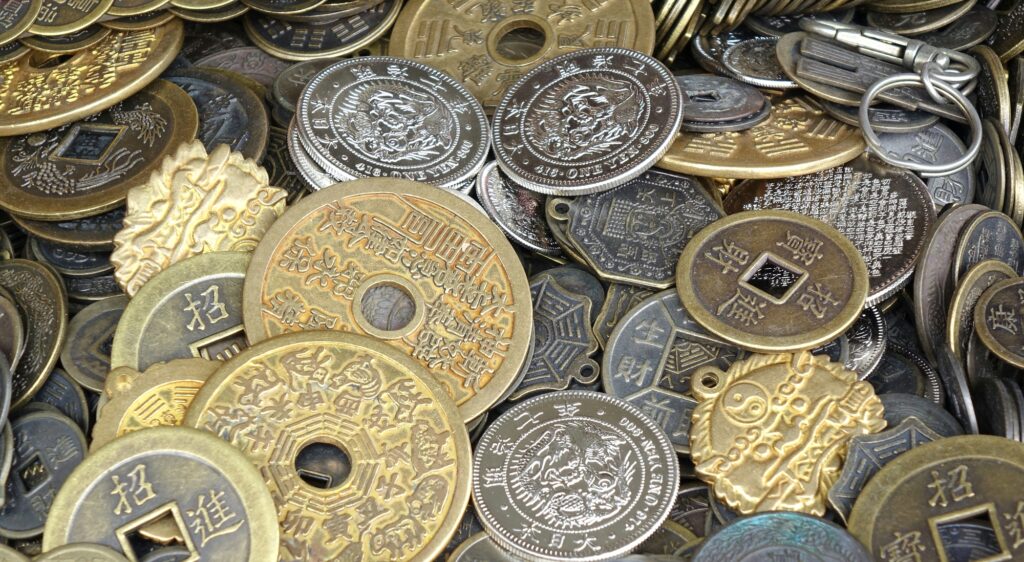
The Rise of Paper Money
The Chinese were pioneers in moving beyond coins. During the Tang dynasty (618-907 AD), merchants began using ‘flying cash’ – a system of credit notes – to avoid the heavy burden of coinage. By the time of the Yuan dynasty (1271-1368 AD), the first government-issued paper money had emerged. This concept spread slowly across the globe, revolutionizing how value was stored and exchanged.
Banking and Modern Finance
With the rise of banking, particularly in Renaissance Italy, money took on a new form. Banks began issuing notes which could be exchanged for gold or silver. This era also saw the emergence of stock exchanges and investment banking, adding layers of complexity to the financial system.
Digital Transactions and Cryptocurrencies
The 20th and 21st centuries have seen the most rapid transformations. Credit cards, electronic banking, and online transactions have further abstracted the concept of money. The advent of cryptocurrencies like Bitcoin has challenged the traditional state monopoly on currency issuance, introducing concepts like blockchain and decentralized finance (DeFi).
Each stage in the evolution of money reflects not only technological advancements but also shifts in societal beliefs and structures, much like the development of religious institutions. These historical milestones set the stage for understanding money’s profound impact on human civilization and its resemblance to a religion in modern society.
Theological Comparison Between Money and Religion
Delving deeper into the theological comparison, we uncover shared characteristics between money and religion that highlight their intertwined roles in shaping human society and guiding individual behavior.
Money and religion, at first glance, appear as disparate entities – one material, the other spiritual. However, a closer examination reveals striking similarities in how they function within society.
- Belief Systems: Just as religions are built on sets of beliefs and faiths, the value of money is also a belief system. A currency holds value because people collectively agree to believe in its worth. This shared belief is what gives money its power, much like the faith of believers in a religion.
- Rituals and Practices: Religions are characterized by rituals and practices that reinforce beliefs, such as prayer, fasting, or pilgrimage. Similarly, the financial world has its rituals, like the trading on stock markets, the annual budgeting processes of governments and corporations, or even personal practices like saving and investing.
- Authority Figures: In religion, priests, rabbis, imams, and other leaders guide followers in spiritual matters. In the realm of finance, bankers, economists, and financial advisors play similar roles, guiding people in financial decisions and influencing their approach to money.
Psychological and Sociological Needs
Both money and religion fulfill deep psychological and sociological needs in humans.
- Sense of Security and Control: Just as religious faith can provide a sense of security and control in an unpredictable world, money offers a semblance of security and control over one’s material circumstances.
- Community and Belonging: Religions often create communities bound by shared beliefs and values. Similarly, economic status can create social groups and communities, where wealth or the lack of it can be a significant factor in social identity and belonging.
- Moral and Ethical Guidance: Many look to religion for moral and ethical guidance. In a parallel manner, how individuals acquire and use money is often seen as a reflection of their moral and ethical standings.
Modern Financial Institutions as Temples
The parallels extend to the institutions that manage these systems. Just like religious temples, modern financial institutions – banks, stock exchanges, and central banks – are seen as the temples of the modern financial world, places where the ‘rituals’ of this modern belief system are practiced.
This theological comparison sheds light on the deep-rooted place that money holds in the human psyche, akin to that of a religion. It shapes not only our economic choices but also our values, ethics, and societal structures.
Ethical Implications of Perceiving Money as a Religion
The ethical implications of perceiving money as a religion are profound, beginning with the ways in which materialism intersects with, and often distorts, our moral values.
Materialism and Moral Values
The elevation of money to a quasi-religious status raises significant ethical concerns. In a society where financial success is often synonymous with personal worth, materialism can overshadow other moral values. This shift can lead to a range of societal issues:
- Wealth as a Measure of Virtue: When financial success is venerated, wealth becomes a yardstick for judging personal virtue. This perception can diminish the importance of traits like kindness, empathy, and altruism.
- Inequality and Social Division: The reverence of money can exacerbate social divisions, where the rich are often idolized while the poor are marginalized. This division contradicts many religious and ethical teachings that emphasize equality and compassion.
The Impact on Individual Behavior
The belief in money as a paramount value influences individual behavior in profound ways:
- Pursuit of Wealth at the Expense of Well-being: Individuals may prioritize wealth accumulation over personal well-being, relationships, and ethical considerations, leading to a life dominated by the pursuit of financial gain.
- Ethical Dilemmas in Business and Finance: The drive for profit can lead to ethical compromises in business practices. Issues like exploitation, environmental degradation, and corruption often stem from the elevation of financial goals above ethical considerations.
Societal Values and Priorities
A society that treats money as a religion tends to prioritize economic growth over other values:
- Material Success over Community Welfare: There’s a risk of prioritizing individual wealth and corporate profits over the welfare of the community and environment.
- Shaping Policy and Governance: Economic interests can disproportionately influence policy and governance, sometimes at the expense of social, environmental, and ethical concerns.
The Need for Balance
Recognizing the ethical implications of perceiving money as a religion calls for a reevaluation of societal values. It necessitates a balance between material wealth and other aspects of life, such as community, spirituality, and personal fulfillment. This balance is crucial for a healthy, equitable, and sustainable society.
Money as a Modern Deity
Transitioning from the broader concept of money as a religion, we now focus on the specific aspect of its deification, examining how money has ascended to occupy a god-like status in modern society.
The Deification of Money
In contemporary culture, money has assumed a role that is not just functional but almost sacred. This deification of money is evident in several ways:
- Symbol of Ultimate Success: Money has become the ultimate symbol of success, achievement, and status. It’s not merely a means to an end but an end in itself, an idol to be pursued and revered.
- Driver of Human Behavior: Much like how deities in traditional religions influence the actions and morals of their followers, money significantly influences human behavior. Decisions about careers, relationships, and lifestyles are often heavily influenced by financial considerations.
- Centrality in Daily Life: The pursuit and management of money occupy a central place in daily life, similar to religious observances. Financial news, stock market updates, and economic forecasts can dominate public discourse, much like religious teachings in a devout society.
The Cult of Wealth and Prosperity
This deification has led to the emergence of a ‘cult of wealth and prosperity’, where financial success is not only desired but also morally glorified.
- Wealth as a Sign of Favor: Just as ancient cultures believed that prosperity was a sign of divine favor, modern society often interprets wealth as a sign of personal merit or even moral superiority.
- Celebrity Billionaires and Wealth Gurus: The modern ‘high priests’ of this cult are the celebrity billionaires and wealth gurus, who are revered and often emulated, their lifestyles and philosophies scrutinized and idolized.
The Challenge of Idolatry
This idolization of money poses significant challenges:
- Distortion of Values: The undue reverence for wealth can distort societal values, overshadowing other important aspects of life like community, altruism, and personal growth.
- Perpetuation of Inequality: The idolization of wealth often perpetuates systems of inequality, as it tends to justify the status quo of wealth distribution, disregarding the systemic issues that contribute to poverty and inequality.
- Personal and Societal Well-being: The relentless pursuit of wealth can lead to burnout, stress, and a sense of emptiness. Societally, it can lead to neglect of crucial areas such as healthcare, education, and the environment.
The concept of money as a modern deity offers a critical lens through which to examine our current societal structure and values. It challenges us to reflect on how we prioritize and pursue wealth, and to consider the broader implications of this pursuit for personal well-being and societal health.
Money As A Religion FAQs
Here are some frequently asked questions about the intriguing concept of money as a religion.
What is the religion of money?
The “religion of money” is a metaphorical concept highlighting society’s deep reverence for wealth, where financial success dictates values, behaviors, and ethics, akin to a traditional religion. It emphasizes the prioritization of wealth acquisition and the influence of economic principles on moral and ethical decisions, without being a religion in the conventional sense.
What is the religion based on money?
There is no actual religion based on money. The concept of “money worship” is a metaphorical critique of societies that prioritize wealth and material success over ethical and spiritual values.
What is the quote about money and religion?
A well-known quote that explores the relationship between money and religion, though not directly stating “money and religion,” is by George Bernard Shaw: “Lack of money is the root of all evil.” This quote plays on the biblical phrase from 1 Timothy 6:10, “For the love of money is a root of all kinds of evil,” highlighting how the pursuit of wealth can lead to moral and ethical compromises.
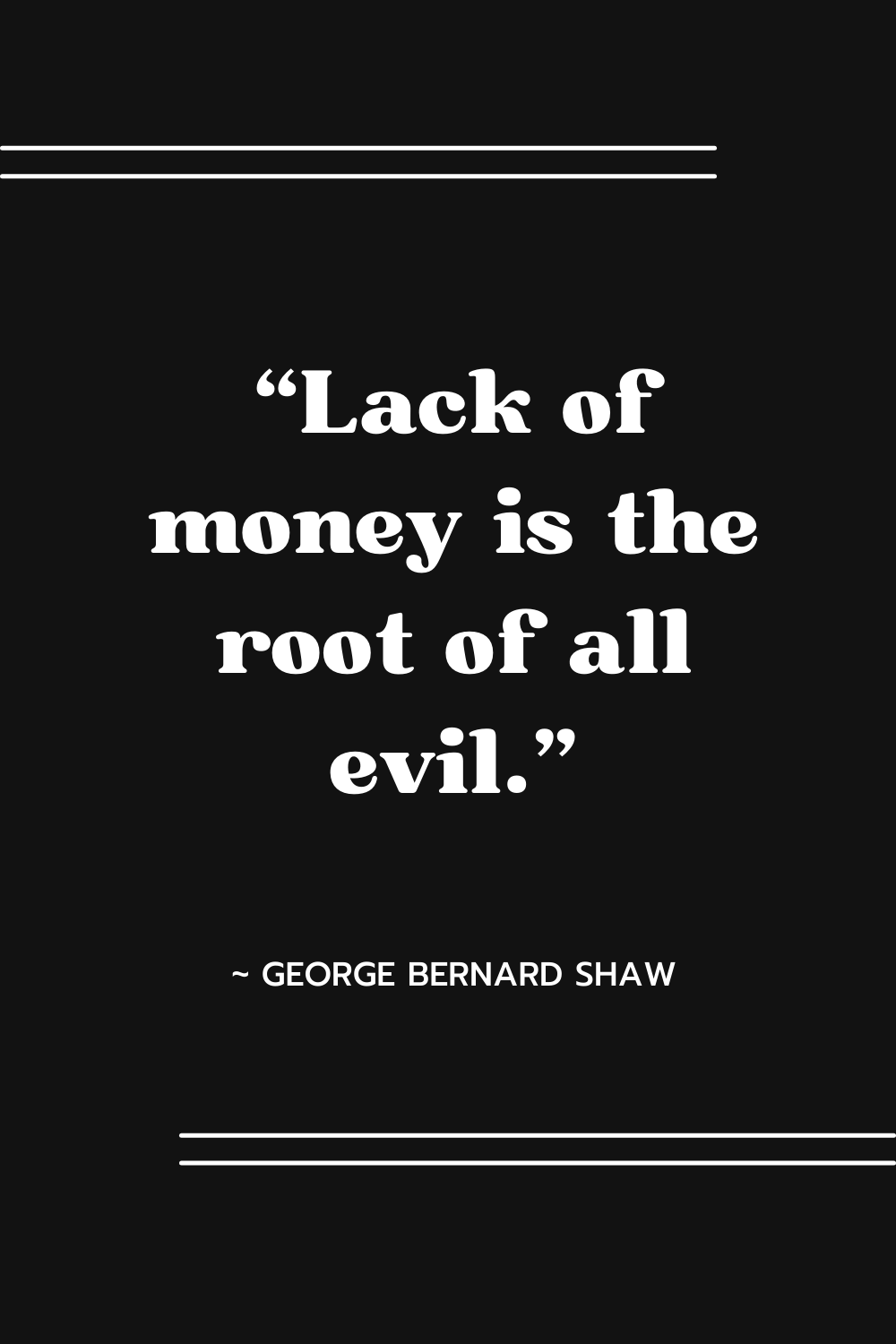
Shaw’s reinterpretation suggests that not money itself, but the absence of it, leads to societal and personal issues, offering a critical perspective on economic inequality and its moral implications.
Is there a religion that worships money?
No traditional religion worships money as a deity. Most religions caution against idolizing wealth, emphasizing ethical and moral use of money. The term “money worship” is more a metaphorical critique of societies or individuals overly valuing material success over spiritual or ethical values.
Conclusion
The exploration of “money as a religion” illuminates the profound and complex relationship between humanity and its most universal medium of exchange. Through historical context, theological comparison, and ethical scrutiny, we’ve seen how money mirrors the characteristics of traditional religions, fulfilling and sometimes exploiting our deepest needs for security, belonging, and meaning.
As we stand at the crossroads of materialism and spirituality, this discourse invites us to reflect on the sanctity we afford to wealth and to contemplate a future where our reverence for money is balanced with a renewed commitment to ethical values and communal well-being. In redefining our devotion to the economic gospel, we may find pathways to a more equitable, moral, and fulfilled society, where money serves humanity rather than rules over it.
Image Credits: Deposit Photos
